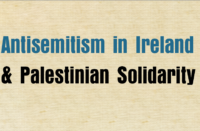The political situation in Haiti has led to a surge in gang violence. This has led to attacks on aircraft and the closing of Haiti’s largest international airport. The increase in gang violence has also disrupted humanitarian organisations that are currently in Haiti, such as Partners in Health, known as “Zanmi Lasante”, with road closures and dangers to staff. Haiti currently has a historically high food insecurity with 5.4 million people struggling with food and 6,000 people in Port Au Prince being displaced.
Suffering through over a decade of food insecurity, the Haitian people had a decision to make, between eating from grain stores or planting that grain in the hope that droughts would subside and crops would grow.
The situation in healthcare is also dire as hospitals cannot function and pharmacies are being looted. Diseases such as cholera are suspected to be spreading, and malaria coming with the rainy seasons will worsen the situation. Education in Haiti is another area that is suffering as 2 out of 10 children aged between 6 and 11 do not attend primary school and 6 out of 10 children in their second year of primary school cannot read by international standards.
With the current issues plaguing Haiti, this decision between planting grain or using up stores may come up again with political instability and gang violence continuing. Heavy reliance on aid in the country means that the 5.4 million people struggling with food security will grow leading to further issues in the future. Despite the growth of food production throughout the world many countries still face malnutrition.
This growth of food insecurity will lead to more dependency on aid and will worsen the situation in health as people who face malnourishment will need access to healthcare. As people facing malnourishment fight over space with those suffering from cholera or malaria the situation will begin to spiral.
Haiti will become further reliant on humanitarian aid from NGOs that are set up in the country. With nutrition and healthcare being of such high importance, education could get left behind in the attempts to get Haiti into a position of self-sufficiency. A lack of resources being allocated to education means the long-term position of Haiti will worsen, and the country may fall back on dependency on foreign aid again.
Haiti gained its independence from France at the end of the 18th century through armed revolt, but the recent history of Haiti shows how these current issues did not come out of nowhere. Haiti has been plagued by political issues since at least 1957 under François Duvalier. Duvalier conducted a reign of terror with a police state containing death squads, executing those who opposed him, positioning loyalists in the military and centralising power in Port au Prince which his son continued after his death.
A further historical issue for Haiti has been the foreign policy of the United States towards the country. The United States has often propped up leaders it has seen as favourable and turned on and off the tap of foreign aid according to the whims of its foreign policy.
Haiti also had issues in the past with environmental disasters which affected food production, and development and caused deaths through floods and disease. In addition, Haiti has experienced economic issues brought on by its colonial past, through “reparations” scandalously having to be paid to France after the Haitian Revolution. These reparations could have been used to support development within Haiti rather than go to France.
How foreign powers have approached Haiti throughout its history, often with contradictions on how the government of Haiti is supported, has led to its present-day issues. It should be up to the Haitian people to decide their own future, not foreign governments who have tried to take that power away from them.






